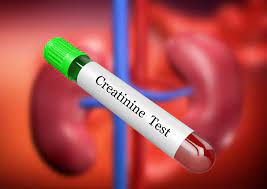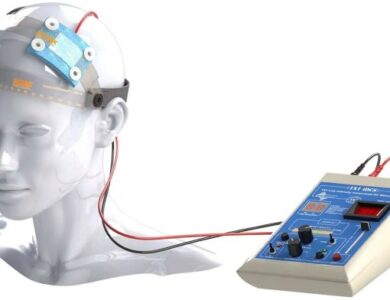Keeping an Eye on Your Kidneys: Why Serum Creatinine Testing Matters for Diabetics

Imagine your kidneys as tiny factories constantly filtering waste products from your blood. They’re crucial for keeping your body clean and functioning smoothly. But when you have diabetes, these tireless workers can face extra strain. That’s where a simple blood test called serum creatinine testing comes in.
Think of it as a sneak peek into your kidney health. By measuring the amount of creatinine, a waste product from muscle breakdown, in your blood, doctors can assess how well your kidneys are filtering.
Why is this so important for diabetics?
Diabetes can damage blood vessels throughout your body, including those supplying your kidneys. Over time, this can lead to diabetic nephropathy, a sneaky kidney disease that often shows no symptoms until it’s advanced.
Early detection is key to preventing serious complications like kidney failure. That’s where serum creatinine testing shines. By regularly checking your levels, doctors can catch any signs of trouble early and take steps to protect your kidney function.
Here’s why this test is a friend to diabetics:
- It’s simple: Just a quick blood draw, no fancy prep needed.
- It’s painless: A tiny prick, a little squeeze, and you’re done.
- It’s informative: Provides valuable clues about your kidney health.
- It’s proactive: Early detection means early intervention, preventing bigger problems down the line.
Remember:
- Regular testing is crucial. Your doctor will determine how often you need the test based on your individual risk factors.
- A high creatinine level doesn’t always mean kidney disease. Other factors can influence it.
- Don’t panic if your levels are slightly elevated. Your doctor will interpret the results in context and determine the next steps.
Taking care of your kidneys is an investment in your overall health and well-being. By partnering with your doctor and making serum creatinine testing a regular part of your routine, you’re giving your kidneys the best chance to keep you smiling for years to come.
Bonus tips for diabetic kidney health:
- Keep your blood sugar under control. This is the single most important thing you can do to protect your kidneys.
- Maintain a healthy weight. Extra pounds put extra strain on your kidneys.
- Eat a kidney-friendly diet. Limit processed foods, salt, and protein.
- Stay hydrated. Drink plenty of water throughout the day.
- Don’t smoke. Smoking is bad for your overall health, including your kidneys.
High creatinine levels can be a warning sign of kidney problems, but it’s important to remember that it’s not always a cause for immediate alarm. Many factors can influence creatinine levels, including muscle mass, diet, and certain medications.
However, if you’re experiencing any of the following symptoms alongside elevated creatinine levels, it’s best to consult your doctor for further evaluation:
General symptoms:
- Fatigue and weakness: This can be caused by anemia, a common complication of kidney disease.
- Loss of appetite and nausea: Waste products building up in the blood due to impaired kidney function can trigger these symptoms.
- Difficulty concentrating: Toxins accumulating in the blood can affect brain function, leading to problems with focus and memory.
- Itching: This can be a sign of skin irritation caused by waste buildup in the blood.
Symptoms specific to kidney problems:
- Changes in urination: This can include decreased urine output, bloody urine, or foamy urine.
- Swelling in the ankles and feet: This is a common symptom of fluid retention due to impaired kidney function.
- High blood pressure: Uncontrolled blood pressure can damage the kidneys and worsen kidney disease.
- Chest pain or shortness of breath: These can be signs of fluid buildup around the lungs or heart, a potential complication of severe kidney disease.
Remember, these symptoms can also be caused by other conditions. It’s crucial to seek medical attention for a proper diagnosis and to rule out any serious underlying causes.
Early detection and treatment of kidney disease are key to preventing complications and preserving kidney function. If you’re concerned about your creatinine levels or are experiencing any of the above symptoms, don’t hesitate to talk to your doctor.
Here are some additional tips for maintaining kidney health:
- Maintain a healthy weight: Excess weight can put extra strain on your kidneys.
- Eat a balanced diet: Limit processed foods, salt, and protein, and focus on consuming plenty of fruits, vegetables, and whole grains.
- Stay hydrated: Drinking plenty of water helps flush out toxins and keeps your kidneys functioning properly.
- Control your blood sugar: If you have diabetes, managing your blood sugar levels is essential for protecting your kidneys.
- Don’t smoke: Smoking can damage your kidneys and increase your risk of kidney disease.
- Get regular checkups: Schedule regular checkups with your doctor to monitor your creatinine levels and overall kidney health.
By taking these steps, you can help keep your kidneys healthy and functioning optimally for a lifetime.




